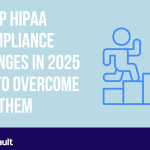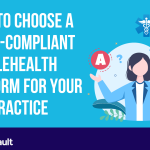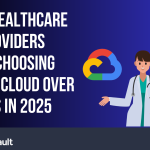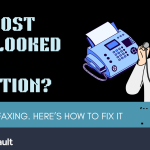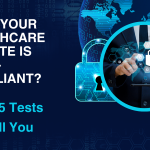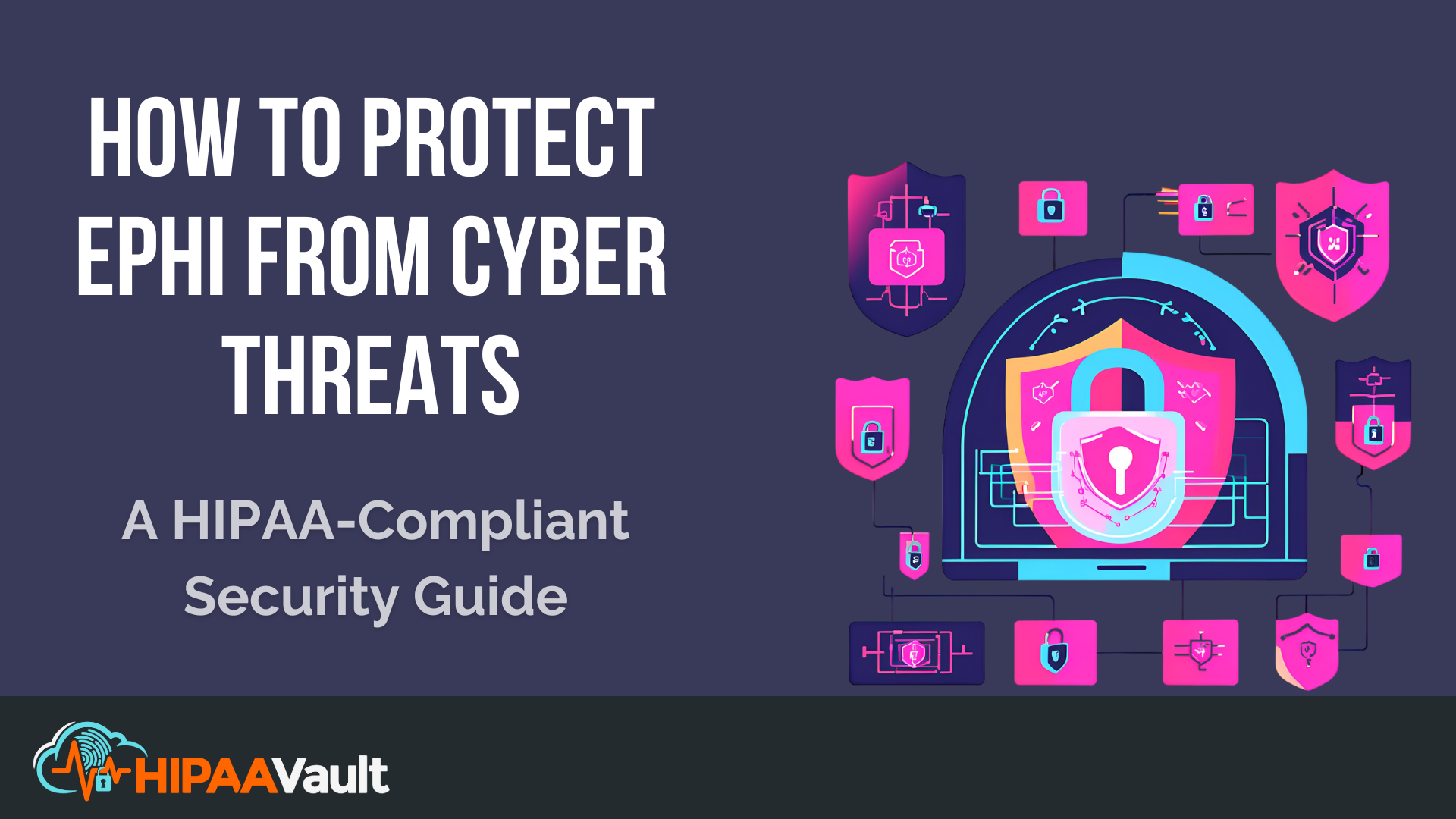
Introduction: Why Securing ePHI Matters
In the last 12 months, healthcare data breaches have surged by over 50%, exposing millions of patient records. Cybercriminals are leveraging increasingly sophisticated tactics to exploit vulnerabilities in healthcare systems, making it imperative for organizations to implement robust security measures. The stakes are high—beyond hefty regulatory penalties, a breach can severely damage patient trust and disrupt operations.
Healthcare providers, insurers, and business associates must comply with HIPAA security rules while staying ahead of threats such as ransomware, phishing, and insider attacks. This guide outlines essential, HIPAA-compliant strategies to safeguard ePHI and prevent costly data breaches.
With threats evolving at an alarming rate, the need for a proactive and layered defense strategy has never been greater. Implementing strong encryption, advanced network security, and stringent access controls can significantly reduce the risk of a cyberattack. Let’s explore how healthcare organizations can effectively protect ePHI from today’s most pressing cyber threats.
1. Identifying Common Cyber Threats to ePHI
Understanding potential risks is the first step in fortifying security. The most prevalent threats to ePHI include:
- Ransomware Attacks – Malicious software encrypts patient data, demanding payment for its release. In 2023, over 70% of healthcare organizations reported ransomware incidents.
- Phishing Scams – Cybercriminals use deceptive emails to trick employees into revealing sensitive credentials or downloading malware.
- Insider Threats – Employees or contractors, whether acting maliciously or negligently, can expose ePHI to unauthorized parties.
- Unsecured Devices & Networks – Personal devices, unprotected Wi-Fi, and Internet of Things (IoT) endpoints can serve as gateways for cyberattacks.
By recognizing these threats and educating employees on cybersecurity best practices, healthcare organizations can take significant strides toward preventing breaches.
2. Implementing Strong Encryption & Data Security
Encryption is one of the most effective safeguards for protecting ePHI from unauthorized access. Organizations should prioritize:
- Data-at-Rest Encryption: All stored data should be encrypted using AES-256 encryption, making it unreadable without proper decryption keys.
- Data-in-Transit Encryption: TLS 1.2 or higher should be used to secure data while it moves between systems, ensuring confidentiality.
- Automated Backup Solutions: Encrypted backups stored in HIPAA-compliant cloud environments protect against data loss due to cyberattacks or system failures.
HIPAA Vault provides fully encrypted cloud solutions, ensuring compliance with security mandates while simplifying data protection. With end-to-end encryption and advanced backup strategies, organizations can maintain business continuity even in the face of cyber threats.
3. Strengthening Network Security Measures
A well-defended network is crucial for preventing unauthorized access and cyber intrusions. Key strategies include:
- Firewalls & Intrusion Detection Systems (IDS): Deploy next-generation firewalls (NGFW) and IDS solutions to monitor and block malicious traffic.
- Virtual Private Networks (VPNs): VPNs ensure that remote connections to ePHI databases remain encrypted and secure.
- Network Segmentation: Separating sensitive data from general networks limits exposure and reduces attack surfaces.
By implementing multiple layers of network security, healthcare organizations can mitigate the risk of breaches while maintaining operational efficiency.
4. Implementing Secure Access Controls
Strict access control mechanisms prevent unauthorized personnel from viewing or modifying ePHI. Best practices include:
- Role-Based Access Control (RBAC): Access should be restricted based on employees’ job functions, ensuring minimal exposure.
- Multi-Factor Authentication (MFA): A combination of passwords, biometrics, and security tokens adds an extra layer of authentication.
- Automatic Session Timeouts: Systems should automatically log out inactive users to reduce risks from unattended devices.
Controlling access to ePHI is a foundational component of HIPAA compliance, reducing the risk of accidental exposure or deliberate misuse.
5. Conducting Regular Security Audits & Monitoring
Proactive security assessments help organizations stay ahead of emerging threats and ensure compliance. Essential steps include:
- Penetration Testing: Ethical hackers simulate cyberattacks to identify and resolve security gaps before they are exploited.
- Security Log Monitoring: Real-time threat detection and automated alerts help security teams respond swiftly to suspicious activities.
- HIPAA Compliance Audits: Periodic assessments verify adherence to HIPAA security rules and identify areas for improvement.
HIPAA Vault offers managed security services, including 24/7 monitoring, penetration testing, and compliance assessments, to proactively mitigate risks. Continuous monitoring and regular security updates help organizations maintain a secure environment against ever-evolving cyber threats.
Conclusion: Best Practices for Keeping ePHI Safe
Protecting ePHI requires a multi-layered security approach that integrates encryption, network security, access controls, and continuous monitoring. As cyber threats evolve, healthcare organizations must adopt proactive security measures to remain HIPAA compliant and safeguard patient data.
Investing in robust cybersecurity solutions, educating staff on best practices, and working with a HIPAA-compliant cloud provider can significantly enhance data protection efforts. Organizations that take cybersecurity seriously will not only avoid costly fines but also build trust with patients and partners.
Partnering with a HIPAA-compliant hosting provider like HIPAA Vault ensures a secure, scalable infrastructure with industry-leading protections.
Need a trusted HIPAA-compliant cloud solution? Contact HIPAA Vault today for expert security services.
Recommended
HIPAA-Compliant Email & Storage Solutions for 2025 and Beyond
WooCommerce Subscriptions for Healthcare Services

